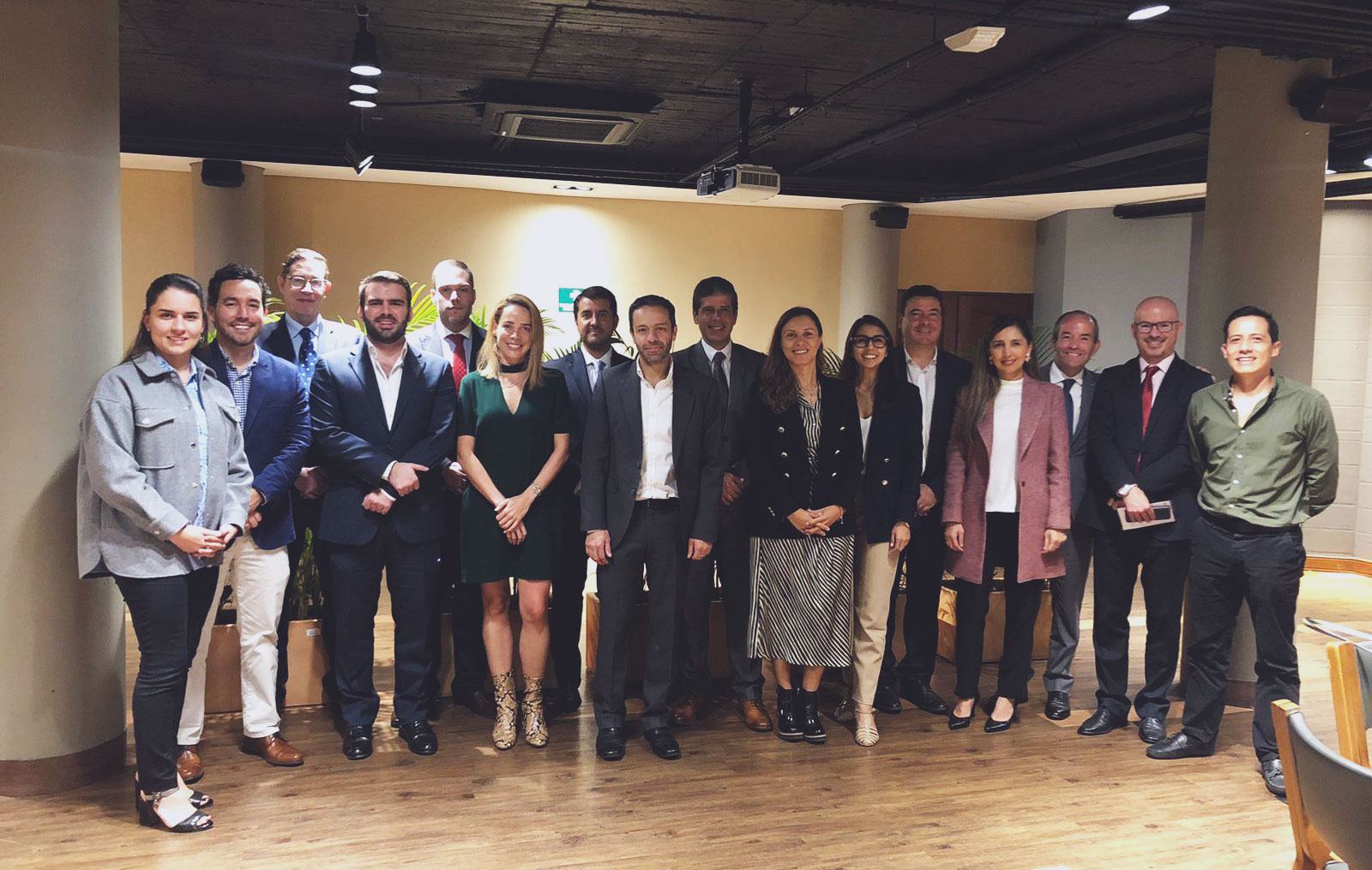Event Report
On Tuesday 14th of March we were delighted to hold the second Legal 500 GC Roundtable in Medellín, once again in conjunction with Contexto Legal, at the Park 10 Hotel. Despite torrential rain a healthy quorum of GCs – including representatives of Andercol, FANALCO, Alión, Postobón, Grupo Santamaria, Grupo Éxito, Bancolombia and Isagen, among others, turned out to discuss a range of topics arising from the current wave of key reforms being enacted or under discussion in Colombia.
After words of welcome from Contexto Legal’s managing partner, Guillermo Villegas, the first topic of discussion was a consideration of how companies and businesses were responding to the considerable changes of regulatory and normative frameworks. Given the breadth of areas – tax, mining, labour, social security, health etc. – that these developments are affecting, there was particular consensus around not only the need to grasp the transversal points arising from all these reforms and to approach and respond to them with a singular voice (for example via the ANADE business chamber), but also to have confidence in the independence and resilience of relevant Colombian institutions, the Courts, etc. A valuable additional point was made regarding the need for the business community to reconsider its vocabulary and rhetoric in the ongoing negotiations that will undoubtedly take place as the year proceeds, adjusting to current realities so as to better make its points and ensure its voice as a stakeholder in current debates.
While the conversation would then touch on how the stresses of these reform processes are affecting GC/Board relations, it was the issue of crisis management – particularly as understood from the GC perspective – that particularly animated the assembled participants. Crisis management specialist Andrés Gómez (of consultancy ‘Laberinto’), set the frame for the discussion with his definition of a crisis as ‘ a negotiation in which one is obliged to participate but without having any degree of control. Effectively, there is little doubt that the current scenario is one in which the business community is being obligated to participate in just such a negotiation. The conversation ranged across the varying steps that need to be put in place to handle specific emergent crisis – having a media trained figure in place, for example – but the discussion highlighted that many of these steps were beyond the capacities of small-to-medium enterprises which the speed and range of reforms were pushing into crisis with immediate effect. What also increasingly became clear is that communication will be absolutely central to the business community’s collective health in the face of these changes, and that -in general- the extent of its activities on the social front, with communities, etc., as part of ongoing business activities has largely remained unacknowledged. Indeed, the depth and longevity of this social and community welfare activity must be given the prominence it deserves and can also constitute a point of commonality in the discussions to come.
A fine evening was brought to an end with some measured and well-weighed closing remarks by Contexto Legal partner Gustavo Cruz, whose optimistic realism before the challenges ahead were at once sober but heartening.

